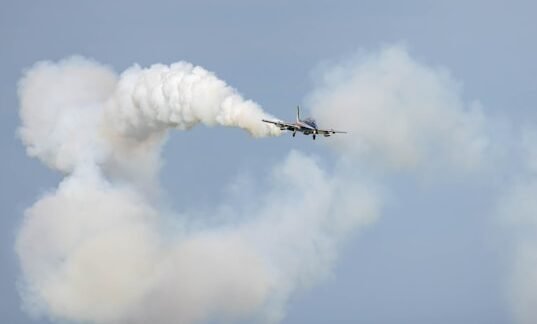India hits nine terror camps across Pakistan and Pok in retaliation for the deadly Pahalgam attack
In a bold escalation of tensions between India and Pakistan, the Indian armed forces launched Operation Sindoor, carrying out precision missile strikes on nine terror camps located across Pakistan and Pakistan-Occupied Kashmir (PoK). The strikes, executed at 1:44 am on Wednesday, involved 24 missiles targeting key terrorist bases of Lashkar-e-Taiba (LeT) and Jaish-e-Mohammed (JeM) in Muridke and Bahawalpur.
The Ministry of Defence confirmed that over 70 terrorists were killed and more than 60 injured in the attacks, which followed the April 22 terror attack in Pahalgam, Jammu & Kashmir, where 26 people — including 25 Indians and a Nepali national — lost their lives.
“These actions were measured, focused, and non-escalatory,” said the Defence Ministry, clarifying that no Pakistani military or civilian installations were hit. “The operation was carefully calibrated to degrade terror infrastructure without targeting the Pakistani military.”
Prime Minister Narendra Modi had vowed retribution, pledging to pursue the perpetrators to the “ends of the earth”. Hours later, Indian missiles rained down on terrorist camps that had long eluded accountability.
Key targets included:
- Markaz Taiba (Muridke) – a LeT stronghold that trained 26/11 attacker Ajmal Kasab and plotter David Headley.
- Markaz Subhan Allah (Bahawalpur) – Jaish-e-Mohammed’s central indoctrination hub.
- Sawai Nala camp (Muzaffarabad) – a major LeT training centre.
- Sarjal camp (Sialkot) – linked to the March 2025 killing of four Indian soldiers.
- Mehmoona Joya (Sialkot) – Hizbul Mujahideen’s base used to plan the Pathankot Airbase attack.
- Other camps in Kotli, Barnala, and Gulpur were also hit, each known for hosting terrorists involved in past assaults on Indian soil.
The Indian government said the operation marks a strategic evolution. “Unlike previous actions like the 2016 Uri strikes or the 2019 Balakot air raids, this mission was broader in scale, technology, and intent,” said a senior official. “India now reserves the right to act preemptively, and no sanctuary is beyond our reach.”
The strikes took place just hours before a nationwide civil defence drill across 244 districts, a coincidence that added to speculation about India’s shifting strategic posture.
Meanwhile, tensions escalated along the Line of Control. Jammu and Kashmir Chief Minister Omar Abdullah criticised Pakistan’s retaliatory firing, calling it “arbitrary and indiscriminate.” Ten people have reportedly died in cross-border shelling. “India showed restraint by targeting only terror infrastructure,” Abdullah said. “Pakistan’s response has been anything but proportionate.”
While global reactions are awaited, India’s messaging is clear: terror infrastructure, regardless of location, is now a legitimate target if it threatens Indian lives. Operation Sindoor could redefine India’s rules of engagement — not just in South Asia, but globally.
